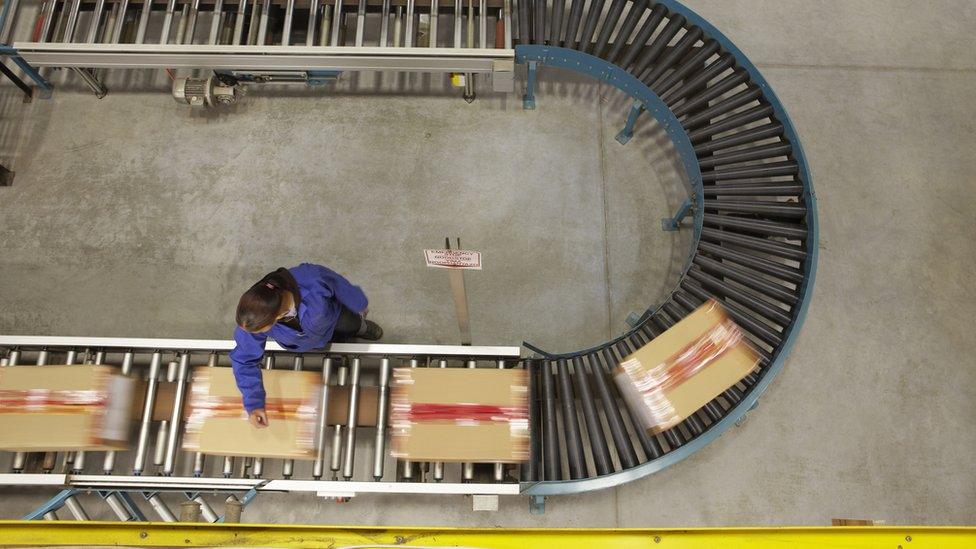Covid: NI Jobs market shrugs off impact of Omicron variant
- Published

Omicron had little impact on the Northern Ireland jobs market in December, official figures suggest.
The highly infectious Covid variant led to restrictions being placed on some businesses.
However, company payrolls continued to grow and were above the pre-pandemic level for the sixth consecutive month.
The increase of 0.6% meant payrolled employees increased from 769,000 to 773,000.
Other measures also suggest the jobs market is continuing to recover - that includes a fall in the unemployment rate during the period September to November.
The number of notified redundancies was so low that the December data is not being published.
Statistical disclosure control policy seeks to prevent potential identification of individual businesses so redundancy totals relating to fewer than three businesses are not disclosed.
However, the labour market has not fully recovered from the impact of the pandemic.
The statistics agency Nisra said: "Total employment (which includes self-employed) and hours worked have yet to return to pre-pandemic levels and similarly claimant count, unemployment and economic inactivity all remain above."
Self-employed
The number of self-employed people has not recovered in the same way as employment.
There were an estimated 137,000 people in self-employment in the period September-November 2019, but in the same period in 2021, that had fallen to 105,000.
The data also points to an increase in economic inactivity; that refers to people who are not in employment and are not seeking employment.
However, that largely seems to reflect an increase in the number of students.
An estimated 95,000 people were economically inactive by reason of being students in the period September to November 2021, which compares to 68,000 during the same period in 2019 and 79,000 in 2020.
Meanwhile, data on pay in Northern Ireland suggests it is just about keeping up with the rate of inflation.
The experimental data suggests that typical monthly pay in December was £1,880 in December 2021, an increase of 1.1% on the previous month and up 5.7% from December 2020.
In November, the rate of inflation rose to 5.1% and is expected to reach at least 6% in spring, according to the Bank of England.